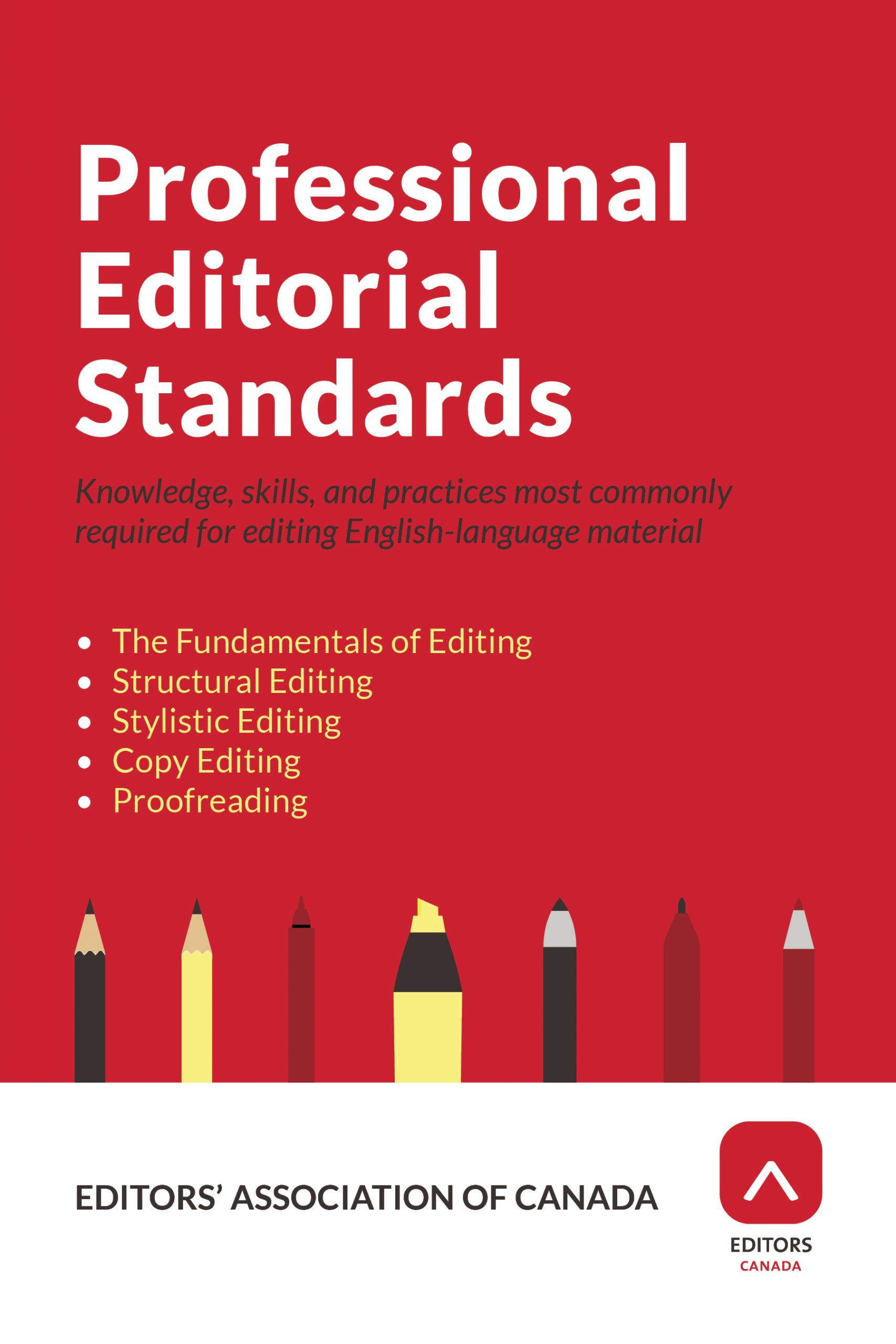
Past, Present and Future — One Editor’s Perspective
This is the final post in a three-part series about my thoughts and experiences as they pertain to Editors Canada’s Professional Editorial Standards (PES) and my ongoing work with the Editors Canada standards committee. In Part 2, I asked how PES might help us prepare for the future as editors. Here, I’ll present just a few thoughts I’ve had and discussions we’ve had as a committee — beyond those that are obvious, like adapting to new technologies and workflows.
Part 3: The Future
As we revise PES, we’re looking at the editing profession in Canada for the next five years or so. As we’ve seen, a lot can happen in five years. I’ve been around a while, and I’ve been editing for quite some time now. One thing I know for sure is this: the value of editing just keeps going up as we wake up every day to a tsunami of questionable information. Here are some areas where I think PES can help clarify what to expect from professional editors in Canada.
Fact-checking
Any editor who notices an error of fact at any stage of editing should flag it, right? The current PES indicates that basic fact-checking is expected only at the copy editing stage — checking information that you can readily verify by using things like search engines and calculators. So far in our discussions as a committee, we’ve identified several types of fact-checking:
- an entirely separate and rigorous service that is done outside of an edit and billed separately
- a defined-scope service provided in each of the first three stages of editing where we flag things like anachronisms at structural editing, usage errors at the stylistic stage and calculation errors at copy editing; this is not as extensive as a separate fact-check but still would be built into each edit (we’re proposing to add this to the new PES)
- a more mechanical check and review at proofreading, particularly for things like call-to-action information
We have to also think about the difference between noticing errors and looking for errors. What do you think? Should editors be expected to look for particular errors at each stage of editing? PES needs more guidance and clarity here.
The multi-hyphenate editor
I used to think that to be a great editor, you needed to professionally dedicate yourself just to editing. I didn’t think you could be really good at more than one thing. But now I think that’s a bunch of hooey. I’ve always known that having multiple knowledge bases and experiences would make you a better editor, so why wouldn’t having multiple professions do the same? Being a great musician can help you be a better editor. Being a great editor can make you a better chef. And so on. I think the multi-hyphenate editor will be more prevalent in the future, and I think we should think about this as we develop the next PES.
Working with other editors
PES provides some guidance on expectations about interacting with other team members, like supervisors. But what about editors working with other editors? There is nothing in the current PES that specifically addresses this, and I think it’s so important that we think about this and clarify expectations between editors as they work on the same project at different stages, at different levels and in different capacities.
A PES for employers
What about tailoring a version of PES for employers of editors, which I suggested in Part 2 of this series. The PES we will develop will be useful to employers, but a tailored version for employers could have some extra illustrative pieces to somehow help quantify the return on hiring an editor. At the 2019 PLAIN conference I went to in Oslo, I saw data visualizations at some sessions that beautifully demonstrated the effectiveness of plain language used for certain large-scale projects. Is it possible to do something like that for editing in general?
There’s so much more to think and talk about. The standards committee will be opening up a Slack workspace soon and inviting Editors Canada members to join in the conversation. Look for an announcement on Editors Canada social media and in your inbox in an upcoming national e-news update. We can’t wait to hear from you.
___
Previous post from Berna Ozunal: Editors Canada’s Professional Editorial Standards: Part 2
The Editors’ Weekly is the official blog of Editors Canada. Contact us.
Discover more from The Editors' Weekly
Subscribe to get the latest posts sent to your email.
